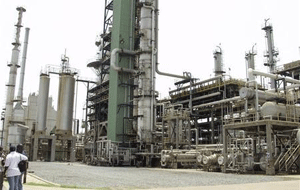Nigerian oil product demand could fall in 2012 due to the removal of popular fuel subsidies, the International Energy Agency (IEA) said on Wednesday, while questioning the government’s method of abolishing the subsidies after the move sparked mass civil unrest. The government of President Goodluck Jonathan scrapped the subsidies this month, effectively more than doubling the price of petrol, sparking protests and a threat by workers to shut down oil production in Nigeria.
Total product demand in Nigeria averaged 280,000 barrels per day in 2011, down 10,000 b/d or 3.8 per cent on a year on year basis, the IEA, the West’s energy watchdog, said in its monthly report. It is expected to remain flat in 2012. “Nigeria is on the watch list for 2012, with oil product demand likely to fall, at least in (the first quarter of 2012),” the IEA said. “Persistent industrial disputes, of the kind seen in January, could further reduce forecasts, not just for oil demand but also for economic growth in general.”
Jonathan later reinstated part of the fuel subsidy, ending the confrontation. “This suggests that, in hindsight, a more gradual process might have been advisable,” the IEA said. “Nor do the measures seem to have been accompanied by much in the way of public consultation or targeted assistance for the poorest members of society.”
Trending Now


